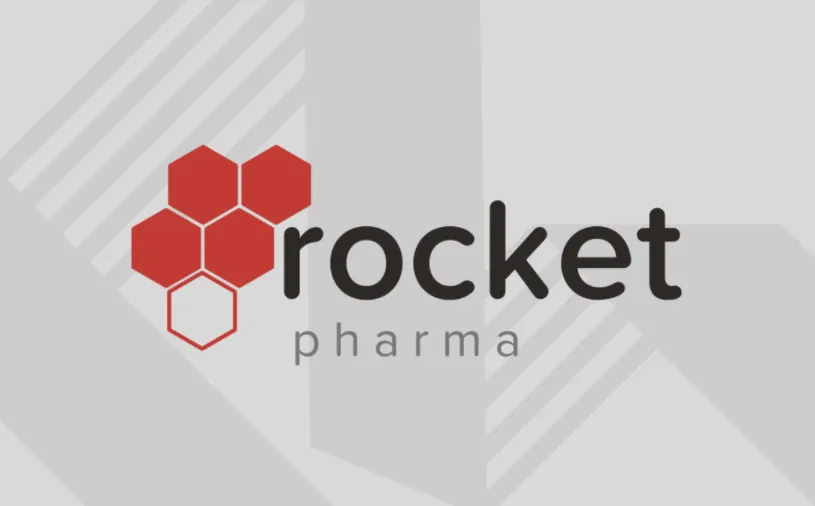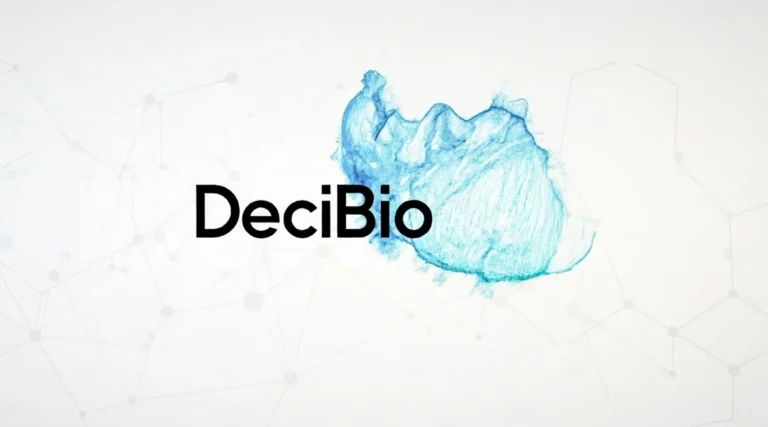
Rocket Pharmaceuticals Announces Second Quarter 2025 Results, Reshapes Strategic Focus Around Cardiovascular Gene Therapy Platform, and Advances Late-Stage Pipeline
Rocket Pharmaceuticals, Inc. (NASDAQ: RCKT), a fully integrated, late-stage biotechnology company developing a sustainable portfolio of genetic therapies for rare disorders with significant unmet medical needs, has reported its financial results and recent corporate developments for the second quarter ended June 30, 2025. The update reflects both operational achievements and decisive strategic actions intended to solidify the company’s leadership position in gene therapies for inherited cardiomyopathies.
CEO Statement: Sharpened Strategic Direction
“The second quarter of 2025 marked an important inflection point for Rocket as we refined our strategic focus around our AAV cardiovascular gene therapy platform and took multiple decisive steps to strengthen our financial foundation and thoughtfully adjust to market dynamics,” said Gaurav Shah, M.D., Chief Executive Officer of Rocket Pharmaceuticals.
Dr. Shah emphasized that the company’s roadmap is now concentrated on programs with the highest potential for long-term value creation, supported by measures to preserve capital and maintain operational agility.
“With regulatory alignment to resolve the clinical hold for RP-A501 in Danon disease in progress, momentum building for RP-A601 in PKP2-ACM as it advances toward a pivotal Phase 2 trial, and RP-A701 preparing to enter the clinic for the treatment of BAG3-DCM, Rocket is positioned as the leader in the development of gene therapies for inherited cardiomyopathies,” Shah noted.
He added that while Rocket is pausing additional investment in its Fanconi Anemia (FA) and Pyruvate Kinase Deficiency (PKD) programs, the company remains committed to the patient communities involved and will explore potential strategic partnerships or licensing arrangements to advance those programs externally.
“Our recent reorganization ensures we are appropriately resourced to execute on our near-term milestones with nearly two years of capital,” Shah concluded.
Pipeline and Operational Highlights
Rocket’s latest update underscored progress and challenges across its portfolio, including critical regulatory interactions, clinical trial milestones, and corporate restructuring efforts.
RP-A501 – Danon Disease Gene Therapy Program
Rocket continues to investigate the Serious Adverse Event (SAE) reported in its Phase 2 pivotal study of RP-A501 for Danon disease. The SAE was related to clinical complications from capillary leak syndrome and tragically resulted in the death of a patient. The company has since paused dosing and launched a root cause analysis, with a particular focus on the recent addition of a C3 inhibitor to the pre-treatment regimen.
On May 23, 2025, the U.S. Food and Drug Administration (FDA) placed the trial on clinical hold to allow for further evaluation. Rocket is actively collaborating with the FDA, independent safety monitoring boards, and external clinical experts to identify the contributing factors and ensure robust patient safety protocols before resuming the trial.
While the clinical hold remains active, the company has not provided updated guidance on the expected completion timeline for the trial.
RP-A601 – PKP2 Arrhythmogenic Cardiomyopathy (PKP2-ACM)
Momentum continues to build for RP-A601, Rocket’s gene therapy candidate targeting PKP2-associated arrhythmogenic cardiomyopathy. Initial Phase 1 data, presented at the 28th Annual Meeting of the American Society of Gene and Cell Therapy (ASGCT) in May 2025, demonstrated encouraging safety results and preliminary efficacy signals.

In July 2025, Rocket announced a significant regulatory milestone: the FDA granted Regenerative Medicine Advanced Therapy (RMAT) designation to RP-A601. This designation is intended to expedite the development and review of promising regenerative medicines that target serious conditions and have the potential to address unmet medical needs.
Rocket is now actively engaging with the FDA on the design of a potential pivotal trial, which would evaluate both the safety and efficacy of RP-A601 in a larger patient population.
RP-A701 – BAG3-Associated Dilated Cardiomyopathy (BAG3-DCM)
The company is preparing to initiate a first-in-human Phase 1 clinical trial for RP-A701, an AAVrh.74-based gene therapy for BAG3-DCM, a rare genetic form of dilated cardiomyopathy caused by mutations in the BAG3 gene. This condition results in progressive heart failure, high morbidity, and premature mortality.
Key recent developments include:
- FDA Investigational New Drug (IND) clearance in June 2025.
- Fast Track designation, enabling more frequent interactions with the FDA, the possibility of accelerated approval, and eligibility for rolling Biologics License Application (BLA) submissions.
The planned trial will be a multi-center, dose-escalation study in adults, assessing safety, biological activity, and early efficacy signals. Rocket estimates up to 30,000 individuals in the U.S. may have BAG3-DCM, highlighting the substantial patient need.
KRESLADI™ (marnetegragene autotemcel; marne-cel) – Severe Leukocyte Adhesion Deficiency-I (LAD-I)
Rocket continues to work toward FDA approval of KRESLADI™, its gene therapy for severe LAD-I. The FDA previously issued a Complete Response Letter (CRL) requesting limited additional Chemistry, Manufacturing, and Controls (CMC) information.
The company is engaging directly with senior leadership at FDA’s Center for Biologics Evaluation and Research to provide the required data, with a full BLA resubmission anticipated before the end of 2025.
Strategic Corporate Restructuring and Pipeline Prioritization
As part of its sharpened focus on the AAV cardiovascular gene therapy platform, Rocket implemented a workforce reduction of approximately 30% across all functions. Together with other cost-saving measures, these changes are expected to reduce operating expenses by around 25% over the next 12 months.
The restructuring will allow the company to direct resources toward its three late-stage AAV programs:
- RP-A501 – Danon disease
- RP-A601 – PKP2-ACM
- RP-A701 – BAG3-DCM
Meanwhile, investment in the Fanconi Anemia (FA; RP-L102) and Pyruvate Kinase Deficiency (PKD; RP-L301) programs will be paused. Rocket is also evaluating potential external collaborations to continue the FA program in alignment with its updated priorities.
Leadership Appointment – Chief Operating Officer
In July 2025, Rocket appointed Chris Stevens as Chief Operating Officer. Stevens brings more than 25 years of experience in technical operations, product strategy, and general management, with a proven track record in the gene therapy field.
Most recently, Stevens served as Executive Vice President and Chief Patient Supply Officer at Spark Therapeutics (a Roche subsidiary), where he oversaw manufacturing, supply chain, quality, compliance, engineering, environmental health and safety, and facilities management. He played a pivotal role in ensuring the commercial delivery of gene therapies to patients.
Second Quarter 2025 Financial Results
- Cash Position: Rocket held $271.5 million in cash, cash equivalents, and investments as of June 30, 2025. The company projects this will fund operations into the second quarter of 2027, excluding any proceeds from a potential Priority Review Voucher if KRESLADI™ is approved.
- Research and Development (R&D) Expenses: $42.7 million for Q2 2025, compared to $46.3 million in Q2 2024. The $3.7 million decrease was driven primarily by reduced manufacturing and development costs ($2.3 million), lower professional fees ($2.0 million), and decreased spending on building supplies and consumables ($0.8 million), partially offset by higher clinical trial expenses ($1.2 million).
- General and Administrative (G&A) Expenses: $25.0 million for Q2 2025, down from $27.4 million in Q2 2024. The reduction was largely due to lower commercial preparation costs ($1.4 million) and decreased compensation and benefits ($0.9 million).
- Net Loss: $68.9 million, or $0.62 per share (basic and diluted), compared to a net loss of $69.6 million, or $0.74 per share, in Q2 2024.
- Shares Outstanding: 107,884,420 as of June 30, 2025.
Restructuring Expenses and Outlook
Rocket incurred approximately $3.5 million in restructuring and restructuring-related charges during the first half of 2025.
Despite near-term operational challenges—including the clinical hold on RP-A501—the company believes its streamlined portfolio, extended cash runway, and ongoing regulatory engagements position it well to deliver multiple value-driving milestones over the next 18–24 months.
Rocket’s refined strategy, centered on inherited cardiomyopathy gene therapies, is designed to create a sustainable path toward long-term growth and patient impact. Key upcoming milestones include:
- Resolution of the clinical hold on RP-A501 and resumption of its pivotal trial.
- FDA discussions and potential pivotal trial initiation for RP-A601 in PKP2-ACM.
- Launch of the Phase 1 trial for RP-A701 in BAG3-DCM.
- BLA resubmission for KRESLADI™ before year-end.
By prioritizing high-value programs, managing costs, and maintaining focus on execution, Rocket aims to advance transformative therapies for rare and life-threatening genetic disorders.





